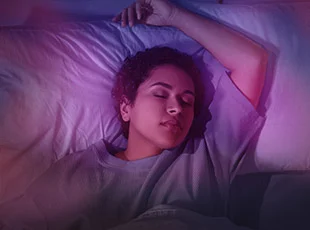What is aromatherapy, and can essential oils help you sleep? Aromatherapy—the use of aromatics—has been used since ancient times to promote wellness and relaxation and is thought to help treat sleeplessness, too. Today, essential oils are used for many of the same purposes as they were in the past but are typically a complement to conventional treatments, including sleep aids and meditation. Read on to discover how to use aromatherapy as a gentle, non-medicinal way to help restless sleepers calm their minds and bodies to get ready for bed.
Aromatherapy
A French chemist first coined the term “aromatherapy” in 1937 after successfully treating his severely burned hand with lavender oil. But the practice of aromatherapy dates back much further, to ancient Egyptian, Chinese, and Roman civilizations. Although the exact origins of aromatherapy are unknown, the therapeutic, spiritual use of aromatherapy has been noted by many ancient cultures across the world. It is known that oils were used for esthetic pleasure, and as a luxury item and a bartered good in the beauty industry. At the time, it was also believed that essential oils increased the shelf life of wine and improved the taste of food. While aromatherapy had many uses in the past, today calming essential oils—like lavender—are primarily used in association with sleep and relaxation.
So, what is aromatherapy exactly? Aromatherapy is a practice based on the use of aromatic materials, such as essential oils and fragrances, that can complement your existing bedtime routine. Aromatherapy can be cosmetic and involve the use of soothing fragrances to help you relax before bed. Aromatherapy is often offered as a secondary therapy (alongside standard treatments) or alternative medicine (as opposed conventional, evidence-driven medical treatments).
Aromatherapists—people who practice aromatherapy—use therapeutic essential oils in unique blends that can be applied topically, inhaled, or used in the bath or shower. It is important to note that there is no solid medical evidence that suggests aromatherapy can either prevent, treat or cure any disease.
”Many people rely on soothing scents—especially deep floral and herb scents—to promote relaxation and relieve stress.”
Aromatherapy for sleep
If you’re having trouble falling or staying asleep, adding essential oils to your bedtime routine may help you sleep. While there are limited scientific studies on how exactly essential oils encourage restful sleep, many people rely on soothing scents—especially deep floral and herb scents—to promote relaxation and relieve stress.
One of the most popular scents, lavender has been recorded as an important essential oil since the 13th century, when a German Abbess named Hildegard grew and distilled it as medicine. Lavender has a deep floral fragrance that can evoke feelings of calm and mental wellbeing. But it’s not the only calming and soothing essential oil. Chamomile essential oil is also known for its calming, stress-relieving scent, and is well regarded as a gentle, soothing fragrance that can calm a restless body and mind to ease you into a restful sleep. Some common essential oil blends for sleep include combinations of lavender, chamomile, sweet marjoram, eucalyptus, angelica and cedar wood.







